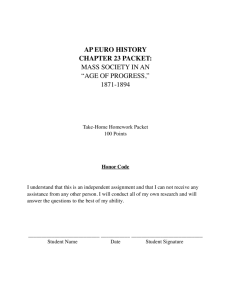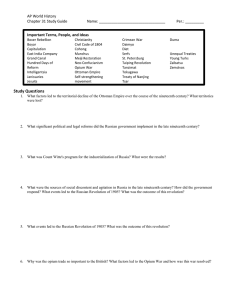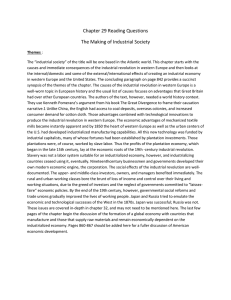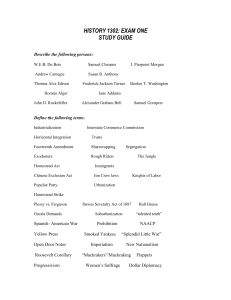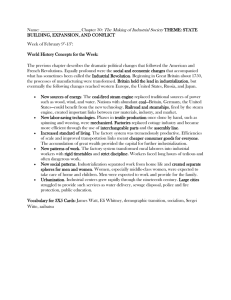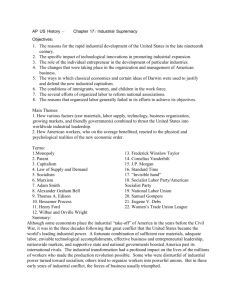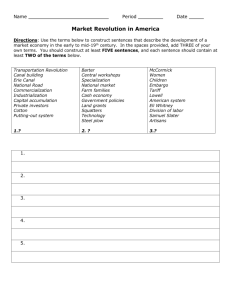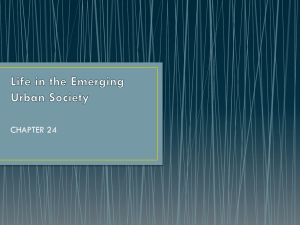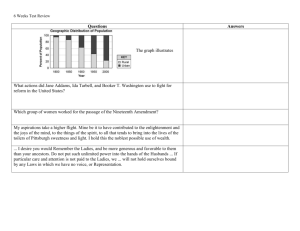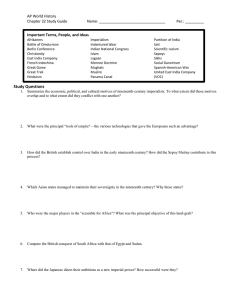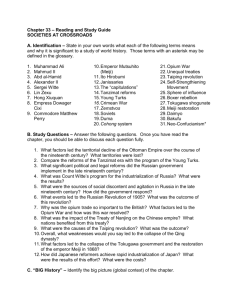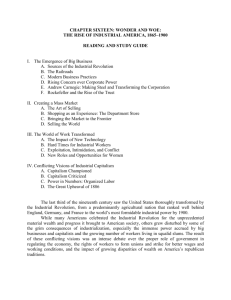Chapter 29
advertisement
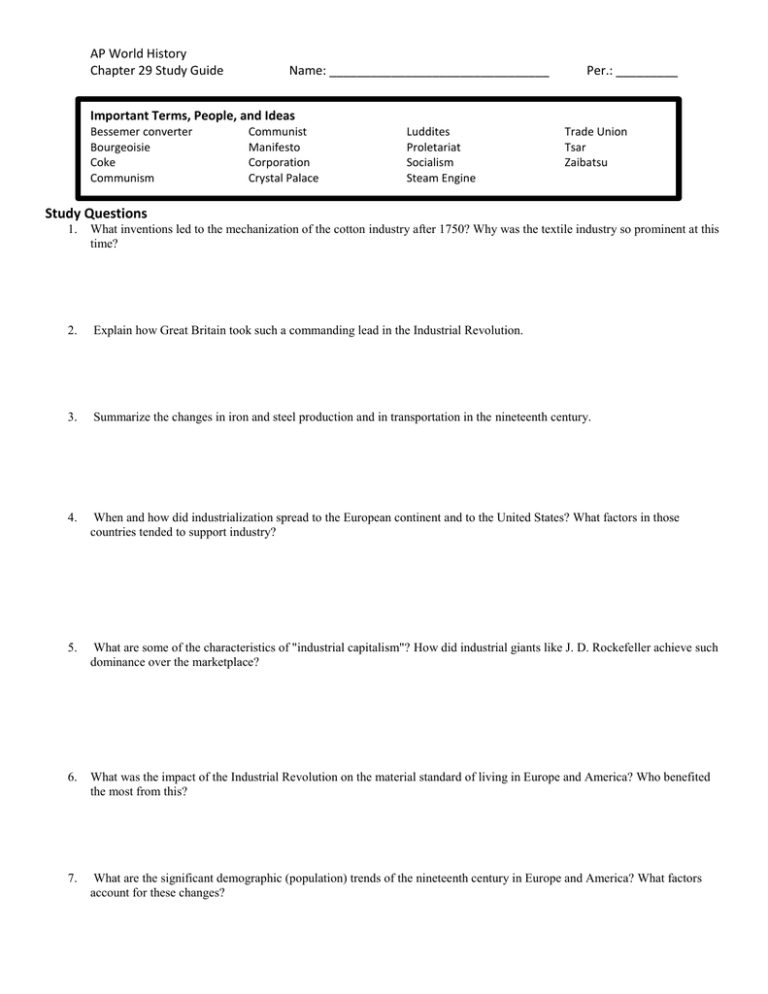
AP World History Chapter 29 Study Guide Name: ________________________________ Per.: _________ Important Terms, People, and Ideas Bessemer converter Bourgeoisie Coke Communism Communist Manifesto Corporation Crystal Palace Luddites Proletariat Socialism Steam Engine Trade Union Tsar Zaibatsu Study Questions 1. What inventions led to the mechanization of the cotton industry after 1750? Why was the textile industry so prominent at this time? 2. Explain how Great Britain took such a commanding lead in the Industrial Revolution. 3. Summarize the changes in iron and steel production and in transportation in the nineteenth century. 4. When and how did industrialization spread to the European continent and to the United States? What factors in those countries tended to support industry? 5. What are some of the characteristics of "industrial capitalism"? How did industrial giants like J. D. Rockefeller achieve such dominance over the marketplace? 6. What was the impact of the Industrial Revolution on the material standard of living in Europe and America? Who benefited the most from this? 7. What are the significant demographic (population) trends of the nineteenth century in Europe and America? What factors account for these changes? AP World History Chapter 29 Study Guide Name: ________________________________ Per.: _________ 8. What was the impact of the industrial revolution on working-class families? Consider the changes for working-class men, women, and children. 9. In what ways did the major industrial nations of the west become more responsive to the needs and interests of working people? 10. Compare the process of industrialization in Russia and Japan in the late nineteenth century. Inquiry Questions 11. Compare the conditions for workers under the putting-out system with the working conditions in the factory system. Which system would be preferable to most workers? Who benefits from the new system of labor? 12. What were living conditions like in the industrial cities of the late nineteenth century? What systems and agencies needed to be developed to address some of these problems? 13. What was Karl Marx's criticism of industrial capitalism? What solutions did he envision? How well did he foresee the evolution of industrial society? Did his predictions come to pass?
